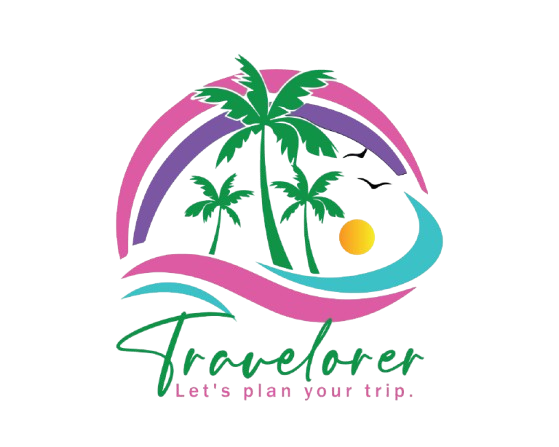Embarking on a road trip doesn’t have to break the bank. With careful planning and creative strategies, you can explore America’s stunning landscapes while staying within your means. A $500 budget is more than enough to create lasting memories, especially when you leverage free camping opportunities and smart gas-saving tactics.
Thank you for reading this post, don’t forget to subscribe!Understanding fuel prices, vehicle maintenance, and camping options is crucial for a budget-conscious adventure. By combining free public lands managed by the BLM with smart route planning, you can significantly reduce costs. Additionally, taking advantage of fee-free days at national parks and using resources like the America the Beautiful pass can stretch your dollar further.
Since the pandemic, road trips have surged in popularity, with 97% of summer trips now being by car. This trend highlights the growing desire for affordable, flexible travel. With the right strategies, your next road trip can be both enjoyable and economical.
Key Takeaways
- Plan your route to include free camping and low-cost gas states.
- Utilize fee-free days at national parks to save money.
- Consider purchasing the America the Beautiful pass for annual access.
- Maintain your vehicle to avoid unexpected repair costs.
- Leverage online resources for smart trip planning.
Starting Your Budget Road Trip Adventure
Setting off on a budget road trip is an exciting way to explore America without overspending. A $500 budget offers plenty of opportunities for adventure when you plan wisely. Start by understanding your limits and identifying affordable options like free camping on public lands.
Understanding the $500 Budget Limitations
Your $500 budget will cover gas, food, and activities. Allocate funds wisely to avoid overspending. Consider purchasing an America the Beautiful pass for access to multiple parks, saving on entrance fees. Timing is key—visit during free admission days to maximize savings.
Setting Realistic Expectations for a US Road Trip
Plan your route to include low-cost attractions and states with affordable gas. Maintain your vehicle to prevent unexpected repair costs. Use online tools to find the cheapest gas and plan your stops efficiently.
With smart planning, your $500 road trip can be both fun and economical. Focus on affordable solutions and enjoy the journey!
Preparing Your Car and Essential Supplies
Before hitting the open road, ensuring your vehicle is in top shape is crucial for a smooth journey. A well-maintained car reduces the risk of breakdowns and unexpected expenses, especially during long day drives or overnight stays in remote areas.
Vehicle Maintenance and Pre-Trip Checks
Start with a thorough vehicle inspection. Oil changes, tire inspections, and battery health assessments are non-negotiable. Properly inflated tires with sufficient tread improve fuel efficiency and safety, particularly in adverse weather conditions. A reliable vehicle ensures a smooth camping experience on public lands.
Stock up on emergency supplies. Include jumper cables, a jack, a spare tire, flashlight, extra batteries, multi-tool, water, non-perishable snacks, blankets, and a first-aid kit. For winter travel, add ice scrapers, snow shovels, and tire chains. “A well-prepared emergency kit can be the difference between a minor setback and a major disaster,” notes the American Automobile Association (AAA).

- Oil changes and tire checks are essential for safety and efficiency.
- Emergency supplies like jumper cables and a first-aid kit are must-haves.
- Winter travel requires additional gear like ice scrapers and tire chains.
Investing time in preparation ensures your car is ready for the journey, whether it’s a day drive or a night camping trip. This diligence enhances your safety and the overall enjoyment of your adventure across the country.
How to plan a road trip on a $500 budget,
Planning a road trip on a $500 budget requires smart strategies to make the most of your adventure. By focusing on cost-effective solutions, you can enjoy a memorable journey without overspending.
Smart Gas Fill-Up Strategies in Low-Tax States
Saving on gas is a key part of budget travel. States like Oklahoma and Wyoming offer lower gas prices due to reduced taxes. Filling up in these areas can significantly cut your fuel costs. Consider using apps like Gas Buddy to find the cheapest stations along your route.
Another tip is to plan your route to pass through states with lower gas prices. Even a slight difference in price per gallon can add up over long distances, helping you stay within your budget.
Comparing Affordable Route Options
Choosing the right route can balance cost and time. Compare different routes to find the most fuel-efficient option. Tools like Google Maps or Roadtrippers can help you plan your trip effectively, ensuring you maximize your budget.
When selecting your path, consider the distance, time, and potential savings. While a longer route might save on gas, it could increase overall travel time. Finding the right balance is crucial for an enjoyable and affordable trip.
Choosing Campsites and Exploring Public Lands
Exploring the great outdoors doesn’t have to be costly. Public lands offer a wealth of affordable camping options, making your adventure both budget-friendly and memorable.
Dispersed Camping on BLM Land
Dispersed camping on Bureau of Land Management (BLM) lands is a fantastic way to experience nature for free. These areas allow you to camp without amenities, perfect for those seeking solitude. Always follow “Leave No Trace” guidelines to preserve the environment.
For example, Camp 4 in Yosemite offers primitive camping at no cost. Such sites are ideal for tents and small RVs, though facilities are basic. This option is perfect for travelers aiming to save on accommodation costs.
Finding Inexpensive Campsites at State and National Parks
State and national parks often have campsites priced under $50 per night. These sites usually offer basic amenities like restrooms and water, providing good value for the cost.
Plan your stops using online resources like Recreation.gov to find and book affordable campsites. Some parks even offer first-come, first-served spots, though these can fill up quickly during peak seasons.
By choosing government-controlled sites over private campgrounds, you can enjoy scenic views without the high costs. This balance of affordability and natural beauty makes public lands a great choice for any adventurer.
- Use online tools to locate affordable campsites.
- Consider dispersed camping for free options.
- Plan ahead to secure spots, especially during busy times.
Maximizing Savings with National Park Passes
Exploring America’s national parks can be both affordable and rewarding with the right strategies. One of the most cost-effective ways to visit multiple parks is by purchasing an America the Beautiful annual pass.
Benefits of the America the Beautiful Pass
The America the Beautiful pass costs just $80 annually and grants access to more than 2,000 federal recreation sites. This includes iconic destinations like Yellowstone, Yosemite, and the Grand Canyon. For frequent visitors, the pass pays for itself after just a few uses, making it a smart investment for nature enthusiasts.
Utilizing Free Admission Days and Discount Opportunities
National parks also offer free admission on specific days, such as Juneteenth and Veterans Day. Planning your visits around these dates can help you save even more. Additionally, discounted passes are available for students, seniors, and military members, further reducing costs.
| Pass Type | Cost | Benefits |
|---|---|---|
| Annual Pass | $80 | Access to 2,000+ sites |
| Free Admission Days | $0 | Selected dates only |
| Discounted Passes | Varies | For students, seniors, military |
By combining the annual pass with free admission days, you can explore America’s natural wonders without breaking the bank. Plan your route to include multiple parks and enjoy a memorable adventure while staying within your budget.
Optimizing Your Route with Smart Planning Tools
Modern technology has revolutionized the way we plan and execute road trips. By leveraging online maps and specialized resources, travelers can create efficient, budget-friendly itineraries that enhance their overall experience.
Using Online Maps and Resources for Efficient Travel
Digital tools like Google Maps and TheDyrt.com are indispensable for finding affordable campsites and tracking fuel prices. These platforms allow users to compare prices across different states, helping them make cost-effective decisions. For instance, a traveler can identify cheaper gas stations in Oklahoma or Wyoming, states known for lower fuel taxes, and plan their route accordingly.
When exploring the U.S., websites like Recreation.gov are invaluable for locating state parks with affordable camping options. These sites often provide detailed information about amenities and prices, enabling travelers to allocate their $500 budget wisely. Whether you’re looking for a primitive campsite in a national forest or a low-cost spot in a state park, these resources make it easier to find the perfect place to stay.

Smart route optimization not only saves money but also ensures a well-organized travel year. By anticipating travel time and managing stops effectively, travelers can enjoy a more relaxed journey. Tools like Gas Buddy and Roadtrippers help in allocating stops efficiently, making it easier to manage overnight stays and reduce unnecessary expenses.
| Tool | Features | Benefits |
|---|---|---|
| Google Maps | Route optimization, real-time traffic updates | Reduces travel time and fuel consumption |
| TheDyrt.com | Campsite reviews and price comparisons | Helps find affordable camping options |
| Recreation.gov | State and national park information | Identifies low-cost camping spots |
By embracing these digital solutions, travelers can bridge the gap between cost efficiency and travel convenience, ensuring a memorable adventure across the U.S.
Conclusion
With careful planning and resourceful strategies, a road trip on a $500 budget can be both memorable and cost-effective. By focusing on a detailed plan, you can explore diverse destinations while enjoying numerous outdoor amenities.
Vehicle preparation and smart route planning are key to a successful trip. Choosing affordable camping options and utilizing the America the Beautiful pass can significantly cut costs. Don’t forget to take advantage of free admission days at national parks for additional savings.
Strategic online planning tools can help you avoid expensive hotels, making your trip more affordable. Even on a tight budget, you can enjoy the beauty of America’s recreation sites and create lasting memories.
In conclusion, careful execution of these tips will ensure a winning strategy for an affordable, adventure-packed journey. Happy travels!

